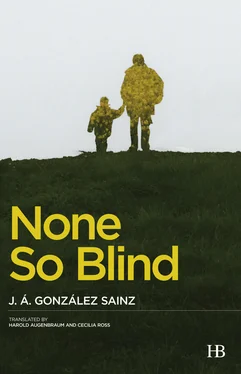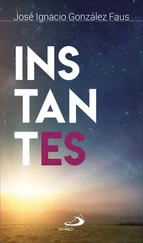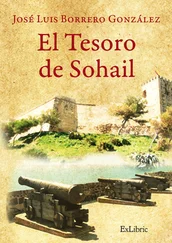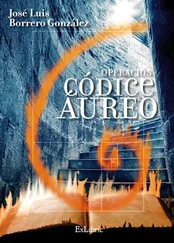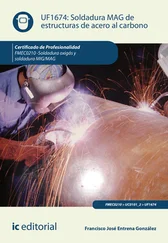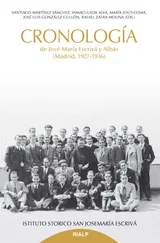He was gasping for breath, his heart was exploding, sometimes he ran and other times he climbed in great strides, huffing and puffing. Still in the distance, on the crest of the promontory, he spotted him. He was on the edge, at the highest point, directly above the modest cross hewn from the same limestone as the mountain itself and on whose base, also made out of the same stone, was chiseled, alongside four other names, the name of his father, which was also his own.
21
Debilitated, as if burdened by a weight greater than anything he had ever borne in his entire life, you might even say incapacitated or crippled, Felipe Díaz — Felipe Díaz Carrión — had finally managed that autumn morning to reach the top, on that path that weaved among boulders and crags and wound its way up the steep pitch.
Stopping every so often, inhaling sharply once and then again and then quickly beginning his trek again, he had climbed, without ever quite catching his breath completely or taking his eyes off the ground, off the pebbles he was crunching beneath his feet or the clumps of grass he was trampling, the thistles and gorse he swerved around more out of habit than for any other reason, or above all off the ground, the sere, dusty earth that it seemed to him he had done nothing in his life but walk upon, with feet increasingly just as cracked and dry as the earth itself, but more than anything, he never stopped looking at what he was looking at, he kept his eyes (might he have said facing head-on, or was it more like his final humiliation?) on that which he had focused them on indelibly — the unyielding, omnipresent expression that no matter where he looked, whether all around him or forward or backward in time, was now the only thing he could see and the only thing pulling him on, like a lead rope, the only thing that spurred him on, with a reverberation that caused everything around it that was not it and was not born of it to wilt, reducing it to a single glow, a single, fixed point, polished and sharpened to the absolute limit, on which everything hung and everything was held fast.
At the right time, he kept saying to himself, at the right time, when I could begin to sense which way the wind was blowing, as he puts it, that’s when I should have given him a nice, big piece of my mind, when I could have done it and I didn’t, or I didn’t think I had to, and when I could have seen it coming but still didn’t see it, or maybe it’s just that I didn’t want to.
Just who do you think you are, I should have told him, who do you think you are, although perhaps not in that tone of voice, not in that tone but in some other one, I don’t know, maybe more understanding, more putting myself in his shoes, trying to reason with him and see things from his point of view, to see what he was seeing.
You’ve been hanging around with whoever you’ve been hanging around with, he could have said to him, and that’s your business; you’ll have seen or they’ll have told you this, that, and the other thing, but when it comes to knowing, really knowing, knowing what’s what, as they say, you haven’t got a clue, my son, not a single clue. When it comes to feeling true concern or any sort of an inkling of real trembling in the face of people and things, and a sense of respect for the words used to talk about people and things, you haven’t got a clue. You go on all day long about enemies, about the people, about oppression, about history, and about war, about suffering, about them and our own. To sublimate, isn’t that the word you’re always using? Well that’s all it is, a sublimation of those prickings of conscience we all have and an obsession with continually twisting things around and fucking everything up. There are always a lot of messed up things in this world, son, I should have told him, a lot, and some are even worse, as your grandfather used to say, but as bad as things are, they can always get much worse still if you try to fix them by meddling around with stuff that’s better left alone, if you try to go down some road you think is a wonderful shortcut and it turns out it’s not a shortcut or even a road and it doesn’t take you anywhere except maybe, eventually, straight off a cliff.
But he would have burst out laughing, he said to himself, he would probably have burst out laughing regardless of when I might have told him or what sort of tone I might have used, he would have just laughed and insulted me. When does a light capable of blinding everyone inside a house, and then everyone else, begin to glow, and what are its symptoms and its conditions? Is it all just chance, the paucity of what one has, the sheer power of bewitchment? And what kind of dawn is that, he went on wondering, stubbornly dissecting the question, tethering his ascent to a ballast heavier than any other possible load.
Of course, he could have called the police at the very outset, he said to himself; but how could anyone report his own son, and for what, so early on? This kid is an idiot, he could have told the cops, this kid is an idiot, but it’s better to nip it in the bud before it goes any further and he turns into something else. But how could anyone report someone for being an idiot? How could anyone ever report his own son for being an idiot, or tell God that this whole thing is grotesque, that’s it’s not even tragic but grotesque — foolish, grotesque rancor and defiance.
Like someone who goes around and around in his thoughts and continues to weigh himself down with the impossible burden of what could have been but wasn’t, Felipe Díaz slowly dragged his limbs, numbed by a feeling of guilt he was unable to dispel and petrified by the lactic acid that shot through that look, that rare, obsessive glow of a single image, fixed before his eyes, that was superimposed with overwhelming arrogance on the glass behind which the land and the plants of that exhausting ascent, and also the impeccable blue of the sky, lay apart. But as it got to about noon, when everything was so still it seemed almost as if not even silence itself could be heard up there, Felipe Díaz finally reached the highest pinnacle on the rocky crest of Pedralén.
He had never gone up there before — his shadow coincided almost exactly with the small space taken up by his feet — and he had never wanted to; he had always simply passed by, just as he had with most other things in life, come to that, at the foot of the immense rock he walked the entire length of and where he often looked upward from directly beneath the highest point of the pinnacle. He would look at that sort of small apex at the summit, where he was now standing, and he would also look at the nests of the Egyptian vultures, their gliding, their soaring — the soft parts, he recalled, the soft parts, like the eyes and the tongue — and then he would hear the voice describing what he was seeing, and even when it was seeing the worst, it described it nevertheless without bitterness or malice or resentful malevolence, exactly, but, at most, with a sort of quiet indignation or resigned hostility, a sort of impenetrable melancholy and pure, and therefore inexhaustible and perhaps even cheerful, sadness.
What could anyone possibly have against simplicity, he had wondered to himself on other occasions. What is it that makes the infinite splendor of simplicity and the roaring of the incipient storm that always follows it, if you’re out to see it, go so unnoticed? What blindness isn’t making a killing? But what he was wondering now and what was pounding away inside his head as he dragged himself up the mountain, practically gasping for air, was something quite different — namely, whether being such a small thing, whether having remained such a small thing, whether not having been important enough when it was necessary to be so, or being so generally unimportant were things one could be guilty of, whether his having been nothing — nothing, it echoed in his head, nothing at all, do you hear me, a fucking dried-out, squashed old turd sitting there in the middle of the road, a dirt-poor nonentity who has no place in this world — were in fact something to be guilty of, and his not having reacted or acted or taken the initiative, his not having spoken up and raised his voice and fought enough, made him somehow just as guilty as his son. As guilty as someone who had narrowed his gaze to a single, rigid, abstract point of things that eclipsed everything else, leaving them on the outside, like strangers, like enemies, of that never ending, forever changing interplay of perspectives that allows all things to be seen, and from that single viewpoint, with that unwavering fixedness and that sole perspective, he had pointed the barrel of his gun with the homicidal simplicity of a metallic hollowness that had spent years rattling and bouncing and rolling around, back and forth, as only emptiness can rattle and roll.
Читать дальше
